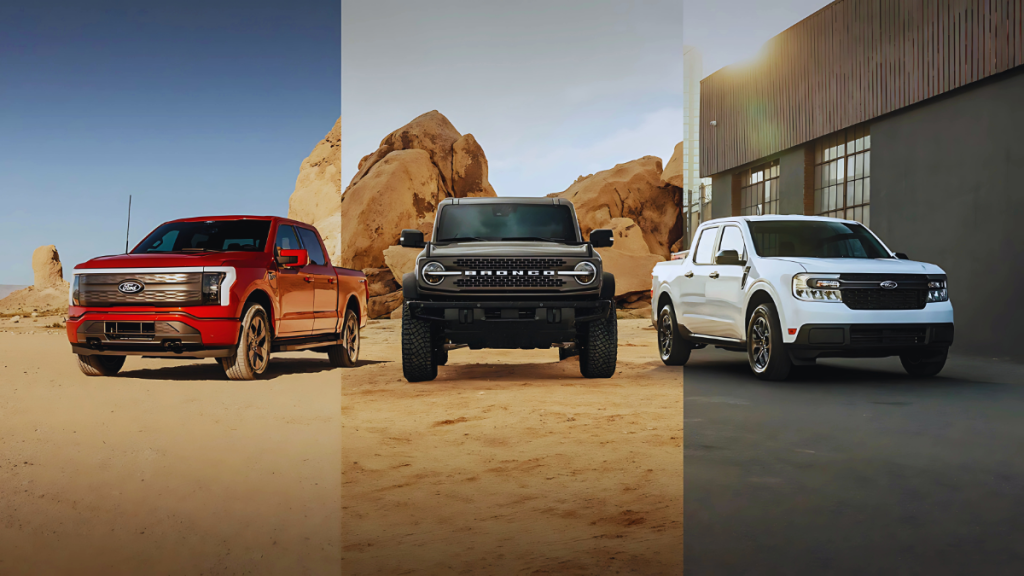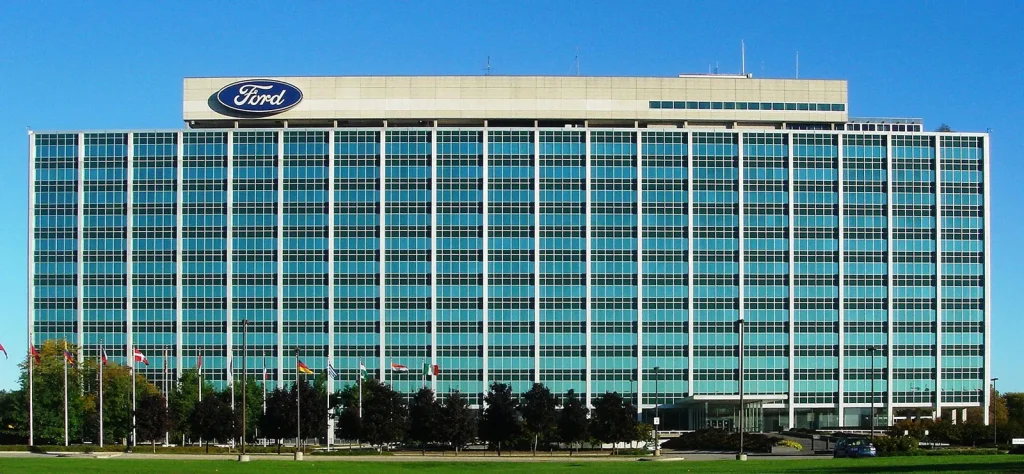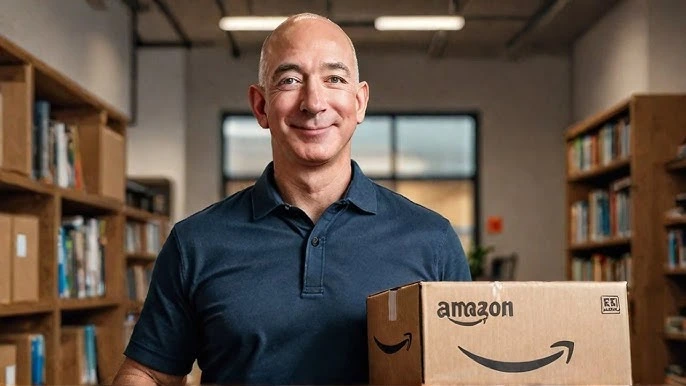
How Jeff Bezos Went from Garage Geek to Global Giant
When Jeff Bezos founded Amazon in 1994 from a small garage in Seattle, no one imagined he would someday become one of the wealthiest people in the world. Starting with a simple mission to sell books online, Bezos developed a visionary plan for what would become the most dominant force in global e-commerce. His relentless focus on customer satisfaction, innovation, and long-term growth led to the creation of an empire that spans online retail, cloud computing, artificial intelligence, logistics, media, and even space travel.
As of 2025, Amazon’s Jeff Bezos is now the richest man in the world—a title that reflects not only his staggering personal wealth but the influence he wields across multiple industries. This article offers a comprehensive exploration of how Jeff Bezos became one of the richest individuals in history, detailing the major milestones, strategies, and philosophies that defined his career. From Amazon’s humble beginnings to his ambitious space exploration ventures, Bezos’ journey is nothing short of extraordinary.
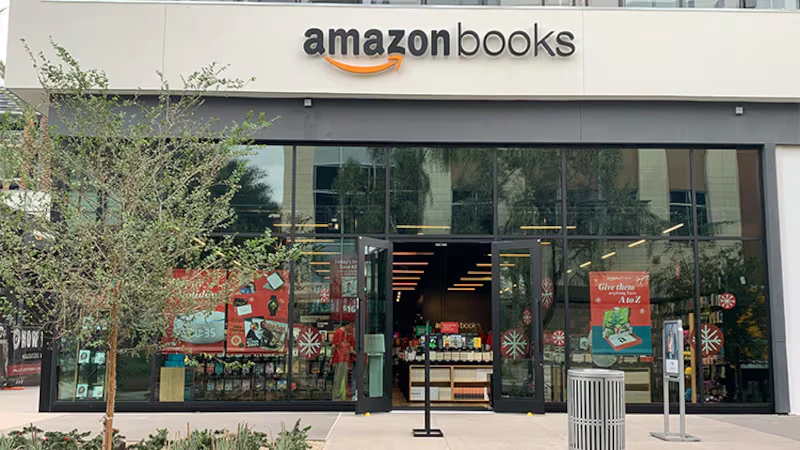
The Birth of Amazon: Beyond Books and Boundaries
The Spark of a Billion-Dollar Idea
Jeff Bezos was working as a vice president at a Wall Street firm when he discovered a statistic that would change his life: internet usage was growing by more than 2,300% per year. This sparked a lightbulb moment. He drew up a list of products he could sell online and chose books due to their universal appeal, low unit price, and massive variety.
In 1994, he left his job, moved to Seattle, and started Amazon.com in his garage. The company launched in July 1995 and quickly gained traction due to its extensive catalog, low prices, and convenience. By the end of its first month, Amazon had sold books in all 50 U.S. states and 45 countries.
Scaling with Ruthless Precision
From the beginning, Bezos focused on scalability. He built a website that could support massive growth and constantly reinvested profits into expanding infrastructure and inventory. Bezos also emphasized a customer-obsessed culture, often leaving an empty chair at meetings to represent the customer.
Amazon introduced several industry-changing features, such as:
- Customer reviews and ratings
- Personalized recommendations
- One-click ordering
- Lightning-fast delivery options
These innovations helped Amazon dominate the e-commerce space and built an ecosystem that extended far beyond books.
The Ecosystem Masterstroke
Bezos’ long-term thinking became more apparent as Amazon expanded. The introduction of Amazon Prime in 2005 wasn’t just a shipping benefit—it was a loyalty program that encouraged users to stay within the Amazon ecosystem. Kindle, launched in 2007, revolutionized digital reading.
The biggest game-changer, however, was Amazon Web Services (AWS), launched in 2006. AWS offered scalable cloud computing solutions and quickly became a profit powerhouse. Today, AWS powers major websites and apps, making it one of Amazon’s most lucrative segments.
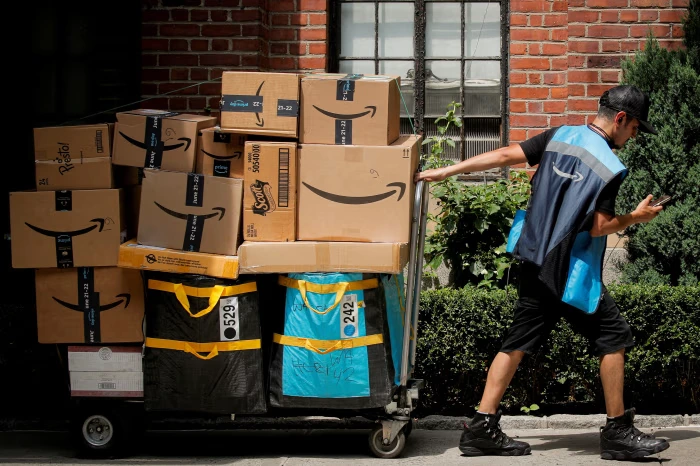
Beating Wall Street’s Expectations—Quarter After Quarter
The “Get Big Fast” Strategy
Bezos had a unique approach to business: prioritize growth over profits. He was upfront with investors, telling them that Amazon would not turn a profit for many years. Instead, he reinvested earnings into hiring, tech infrastructure, warehouses, and product development.
Wall Street was skeptical. But over time, Bezos’ strategy began to yield results. Amazon consistently beat analyst expectations with:
- Explosive user growth
- Industry-disrupting innovation
- Entry into new markets like groceries (Whole Foods), streaming (Amazon Prime Video), and smart homes (Alexa)
In 2015, AWS shocked the market with high profit margins. By 2018, Amazon joined the trillion-dollar club alongside Apple. When the COVID-19 pandemic hit in 2020, Amazon’s logistics and e-commerce capabilities made it an essential service, further strengthening its market position.

Real Estate: Bezos’ Billion-Dollar Portfolio
Mansions to Manhattan—Bezos Owns It All
While much of Jeff Bezos’ wealth is tied to Amazon stock, he has also invested significantly in real estate. His property portfolio includes:
- A $165 million mansion in Beverly Hills, California (formerly owned by David Geffen)
- Several luxury condos on Fifth Avenue in New York City
- A historic estate in Washington, D.C., once a textile museum
- Properties in Medina, Washington, near his former Amazon HQ and Bill Gates’ home
Commercially, Bezos oversaw the development of Amazon HQ2 in Arlington, Virginia, and expansion of Amazon’s massive warehouse and distribution network. He also owns substantial data center real estate through AWS, helping maintain digital dominance.
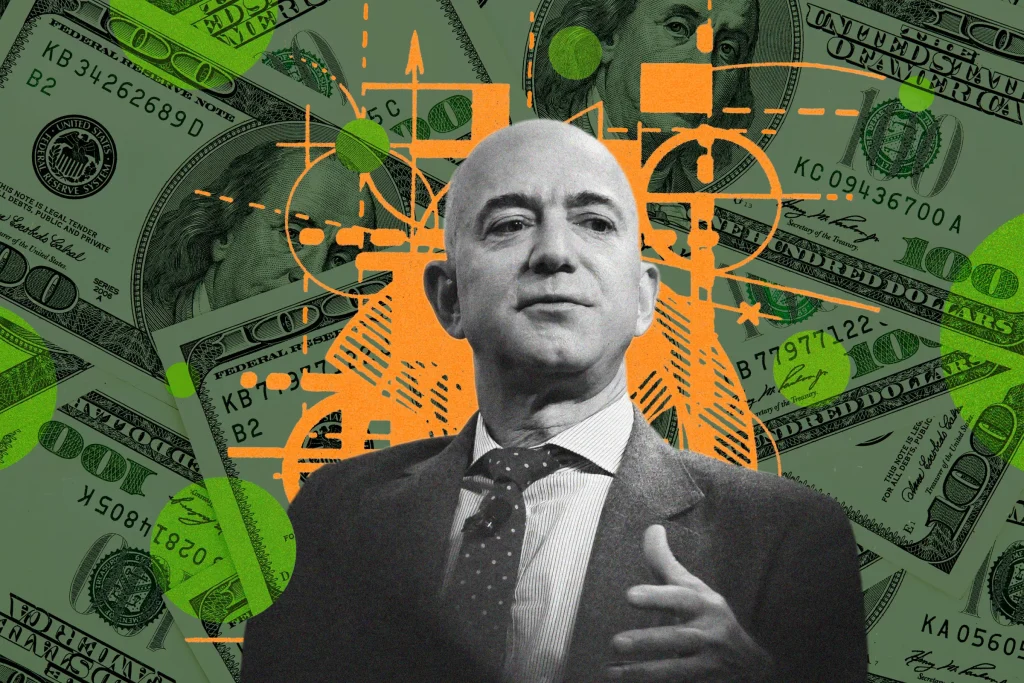
Charitable Donations: A New Era of Bezos Generosity
From Criticized to Commended
Bezos faced criticism for years for his lack of visible philanthropy, especially compared to peers like Bill Gates and Warren Buffett. But in recent years, Bezos has taken major steps to change that image.
In 2020, he launched the $10 billion Bezos Earth Fund to fight climate change. Other notable donations include:
- $100 million to Feeding America during the COVID-19 crisis
- A $2 billion pledge to build free preschools and support homeless families through the Day 1 Fund
- Donations to cancer research, veterans programs, and disaster relief efforts
Bezos has also indicated plans to give away most of his wealth, aligning with the philanthropic trend among billionaires.
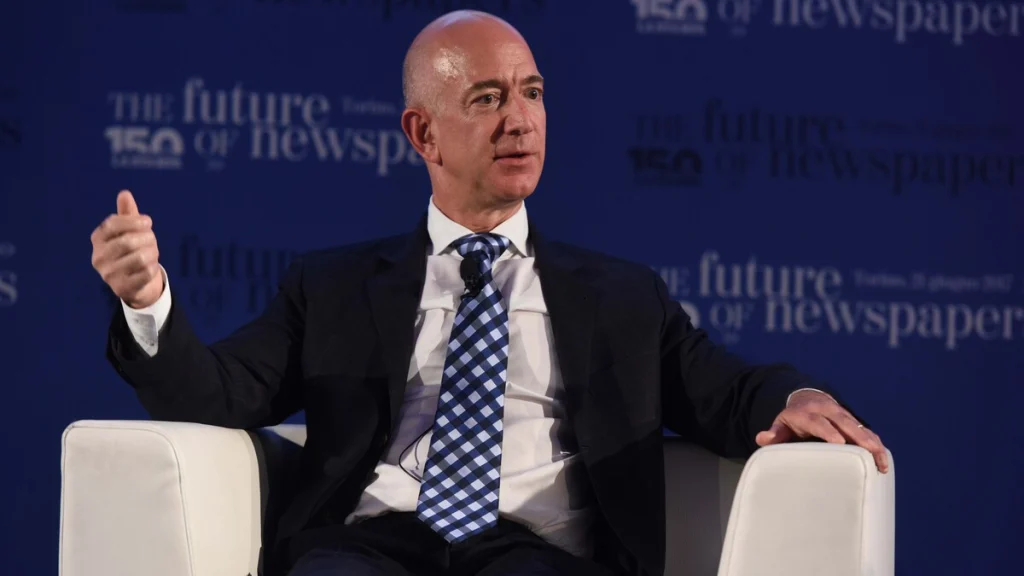
Media Mogul: Owning the Narrative
The Washington Post: A Strategic Play
In 2013, Bezos acquired The Washington Post for $250 million. At the time, many questioned why a tech billionaire would buy a struggling newspaper. The answer? Influence, innovation, and opportunity.
Bezos revitalized the publication by:
- Investing in digital infrastructure
- Hiring top-tier journalists
- Using data to understand reader behavior
Under his leadership, The Post returned to profitability and became a leader in digital journalism. It also provided Bezos with a platform for influence and a defense against political attacks on Amazon.
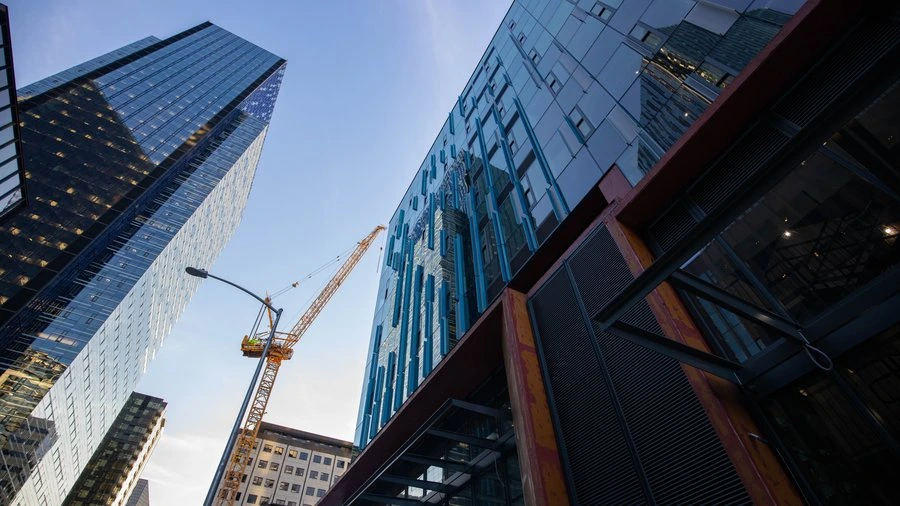
High Tech, Glass, and Travel: Bezos the Futurist
Alexa, Echo, and Smart Homes
Bezos’ vision of a connected future took shape with the launch of Alexa and the Echo device. These products turned Amazon into a household tech brand. Users could:
- Control smart devices
- Play music
- Order products
- Ask questions
Other innovations include:
- Amazon Go: cashier-less stores powered by sensors and cameras
- Ring: a smart home security company acquired by Amazon
- Fire TV and tablets: competing with Apple and Google in the media space
Zoox, Rivian, and Autonomous Travel
Bezos is betting on the future of transportation:
- Zoox: Acquired by Amazon in 2020, this startup develops autonomous ride-hailing vehicles
- Rivian: Amazon invested in this electric vehicle company and ordered 100,000 delivery vans to reduce carbon emissions
- Project Kuiper: Amazon’s initiative to launch a constellation of satellites to provide global internet access, rivaling SpaceX’s Starlink
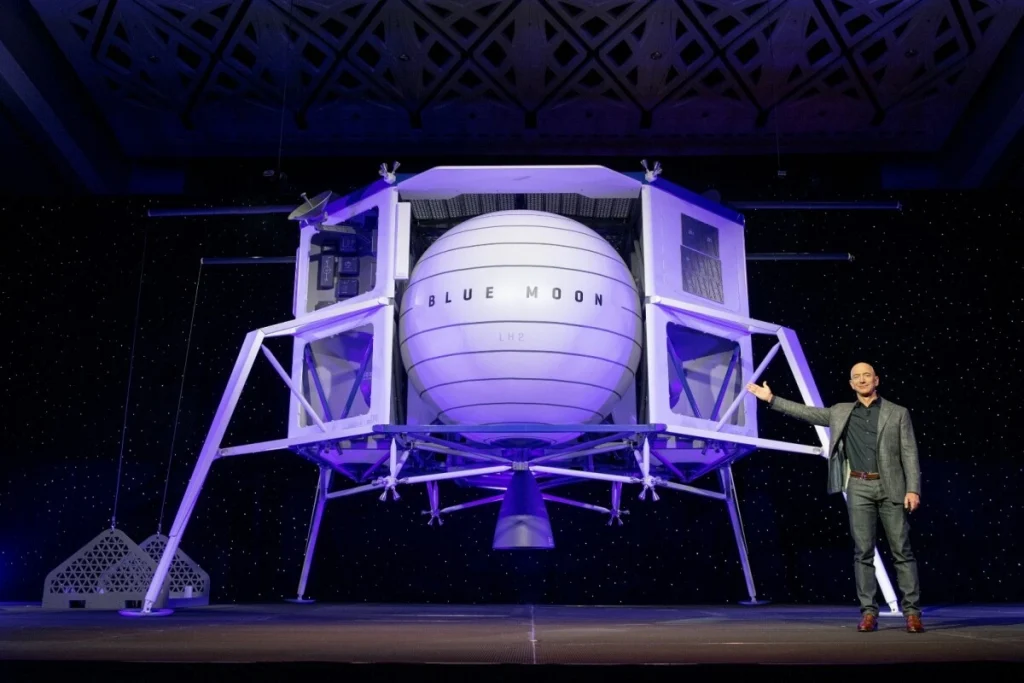
Blue Origin and the Way-Out-There Ideas
“Gradatim Ferociter” — Step by Step, Ferociously
Founded in 2000, Blue Origin is Jeff Bezos’ most ambitious venture. His vision? A future where millions of people live and work in space. Blue Origin’s milestones include:
- New Shepard: A reusable suborbital rocket that successfully carried humans (including Bezos) into space
- New Glenn: A heavy-lift launch vehicle still in development
- Lunar Lander: Aiming to support NASA’s Artemis missions
Bezos envisions a world where Earth is zoned for living and light industry, and heavy industry is moved into space. He believes this is necessary to preserve Earth’s environment for future generations.
He’s also invested in longevity startups to explore life extension technologies, further showing his willingness to think far beyond conventional boundaries.
FAQs About Jeff Bezos
How Did Jeff Bezos Make His Money?
Bezos made his fortune primarily through Amazon, where he held a significant equity stake. He also invested early in Google, Airbnb, Uber, and other tech companies through Bezos Expeditions.
What Is Jeff Bezos’ Net Worth in 2025?
As of 2025, Jeff Bezos’ net worth is over $185 billion, placing him among the top three richest people in the world.
Does Jeff Bezos Still Own Amazon?
Bezos stepped down as CEO in 2021 but remains executive chairman and continues to influence Amazon’s strategic direction.
Is Jeff Bezos Involved in Space Travel?
Yes. Bezos founded Blue Origin to develop reusable rockets and make space travel accessible. He has flown to space himself.
What Are Jeff Bezos’ Philanthropic Goals?
He aims to address climate change, improve education, combat homelessness, and support scientific research.
What Companies Does Jeff Bezos Own?
In addition to Amazon and Blue Origin, Bezos owns:
- The Washington Post
- Bezos Expeditions
- Real estate and investments in startups like Unity Biotechnology, Grail, and more
Is Jeff Bezos a Self-Made Billionaire?
Yes. Though he came from a well-educated background, Bezos built Amazon from scratch, risking everything to create the world’s largest online retailer.
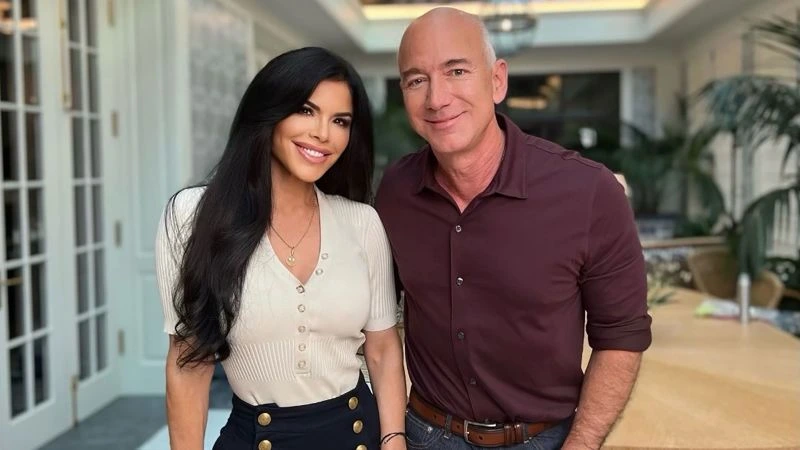
Conclusion: Jeff Bezos’ Legacy—More Than a Fortune
Jeff Bezos’ journey from a garage in Seattle to the top of the global wealth ladder is a story of vision, courage, and relentless execution. He didn’t just change how we shop; he changed how businesses think, how media operates, and how humanity dreams.
Through Amazon, he created the world’s most customer-obsessed company. Through AWS, he built the backbone of the digital economy. Through Blue Origin, he redefined what’s possible beyond Earth.
Jeff Bezos isn’t just a billionaire—he’s a builder of the future. And the next chapters of his legacy are still being written.

